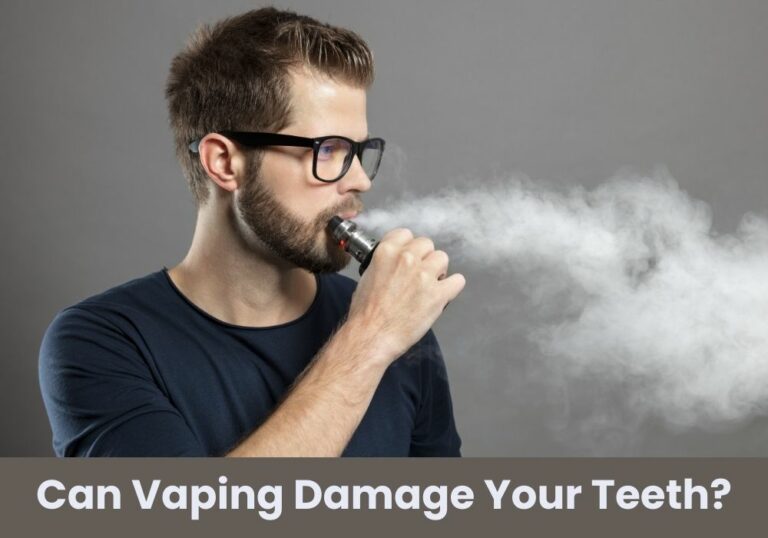
Vaping has become increasingly popular in recent years, with millions of people around the world using e-cigarettes or other vaping devices. However, many people are still unsure about the effects of vaping on their health and how long the chemicals in e-cigarettes stay in their bodies. In this article, I will explore the question of how long vaping stays in your body, drawing on scientific research and expert opinions to provide a clear and accurate answer.
First, it’s important to understand what vaping actually involves. E-cigarettes work by heating a liquid that contains nicotine, flavorings, and other chemicals to produce an aerosol, which is then inhaled into the lungs. This aerosol, also known as vapor, contains a range of potentially harmful substances, including heavy metals, volatile organic compounds, and ultrafine particles. While vaping is often marketed as a safer alternative to smoking, the truth is that we still don’t know the long-term health effects of e-cigarettes, and there is growing evidence that they can cause lung damage, cardiovascular problems, and other health issues.
So, how long does vaping stay in your body? The answer is not straightforward, as it depends on a range of factors, including how often you vape, the type of device you use, and your individual metabolism. However, research suggests that the effects of vaping can last for several hours or even days, with nicotine and other chemicals lingering in the body long after the vapor has been exhaled. In the following sections, I will explore the evidence on how long vaping stays in your system, and what factors can affect the duration of its effects.
Understanding Vaping and Its Effects
What is Vaping?
Vaping is the act of inhaling and exhaling aerosol, commonly referred to as vapor, produced by an e-cigarette or similar device. E-cigarettes are battery-powered smoking devices that heat a liquid to create an aerosol, which is then inhaled into the lungs. The liquid used in e-cigarettes can contain nicotine, flavorings, and other chemicals.
Effects of Vaping
Vaping is often marketed as a safer alternative to smoking traditional cigarettes, but it is not without its risks. According to Johns Hopkins Medicine, there are several reasons why vaping may be particularly enticing to young people. First, many teens believe vaping is less harmful than smoking. Second, e-cigarettes have a lower per-use cost than traditional cigarettes. Finally, youths and adults find the lack of smoke appealing.
However, vaping can have negative effects on the body. Nicotine, which is found in many e-cigarette liquids, is highly addictive and can cause harm to the developing brains of adolescents and young adults. According to the Cleveland Clinic, vaping can cause a serious lung condition called EVALI, or e-cigarette, or vaping, product use-associated lung injury. EVALI causes widespread damage to the lungs and gives you symptoms like coughing, shortness of breath, and chest pain. EVALI can be fatal.
SPIRITBAR Katana BP10000
- Slender, leather-textured body reminiscent of a katana handle for an authentic samurai feel
- Unique samurai-inspired e-liquid flavor - fruity yet not too sweet, with a luxurious, elegant aroma
- Powerful 650mAh rechargeable battery for extended vaping time
- Large 18ml e-liquid capacity and 10,000 puff capacity
- Advanced mesh coil and e-liquid & power display screens for optimal vaping experience
The special juice captures the essence of the samurai spirit with its rich, smoothly pulsating flavor that brings new satisfaction with every puff. The device's slender, leather-textured design evokes the grip of a samurai's katana, making this product a perfect choice for beginner vapors.
Furthermore, vaping can affect the brain, which continues to grow until age 25. Before then, it’s highly sensitive to the effects of e-cigarette chemicals, especially nicotine. It can disrupt brain growth, according to WebMD. Additionally, vaping can cause lung damage and increase the risk of lung infections, according to Johns Hopkins Medicine.
Overall, it is important to understand the potential risks associated with vaping and to make informed decisions about its use.
How Vaping Influences the Body
Vaping has become a popular alternative to smoking, but it is important to understand how it affects the body. Here are some of the immediate and long-term impacts of vaping.
SPIRITBAR Jack’s Flask 9000 Puffs
- Stylish pirate flask-shaped body providing an exciting vaping experience
- Delivering up to 9000 puffs per device
- 20ml e-liquid capacity with 50mg nicotine strength for satisfying throat hit
- Specialized pirate-themed e-juice flavors for rich, swirling taste
- Premium mesh coil optimizes flavor profile for maximum vaping enjoyment
This disposable vape captures the daring spirit of the high seas with its flask styling and signature pirate e-juice flavors. The extraordinary battery life provides 9000 indulgent puffs for extended vaping pleasure. Live boldly and freely with the Jack's Flask - a legendary vaping experience fit for a pirate's adventures.
Immediate Impact
When you vape, the chemicals in the e-liquid are heated and turned into an aerosol, which is then inhaled into the lungs. The immediate impact of vaping is that it can cause irritation to the lungs and airways, leading to coughing, wheezing, and shortness of breath. This is due to the chemicals in the e-liquid, which may include nicotine, flavorings, and other additives.
Nicotine is a highly addictive substance that can cause a variety of immediate effects on the body. It can increase heart rate and blood pressure, constrict blood vessels, and reduce blood flow to the heart. Nicotine can also affect the brain, causing feelings of pleasure and reward, as well as anxiety and agitation.
Long-Term Impact
The long-term impact of vaping is not yet fully understood, but research suggests that it can have harmful effects on the body over time. One study found that vaping can cause damage to the DNA in cells, which can lead to cancer and other diseases. Another study found that vaping can cause inflammation in the lungs, which can lead to chronic obstructive pulmonary disease (COPD) and other respiratory problems.
Vaping can also have an impact on mental health. Nicotine is known to affect mood and can cause feelings of anxiety and depression. Vaping may also increase the risk of developing mental health problems, such as depression and anxiety disorders.
It is important to note that the long-term impact of vaping may vary depending on the type of e-liquid used, the frequency and duration of use, and other factors. More research is needed to fully understand the risks and benefits of vaping.
Overall, vaping can have both immediate and long-term impacts on the body. It is important to understand these impacts and make informed decisions about vaping.
Detection of Vape Substances in the Body
As vaping becomes more popular, many people wonder how long the substances in vape juice stay in the body. The answer depends on several factors, including the frequency of use, the type of substance being vaped, and the method of detection.
Detection in Blood
When a person vapes, the substances in the vape juice are absorbed into the bloodstream. Nicotine, for example, can be detected in the blood within seconds of inhalation. However, the amount of nicotine in the blood decreases rapidly, and it can be difficult to detect after a few hours.
THC, on the other hand, can stay in the blood for much longer. According to a source, THC can be detected in the blood for up to 12 hours after vaping. However, this time frame can vary depending on the frequency of use and the potency of the substance.
SPIRITBAR Katana BP10000
- Slender, leather-textured body reminiscent of a katana handle for an authentic samurai feel
- Unique samurai-inspired e-liquid flavor - fruity yet not too sweet, with a luxurious, elegant aroma
- Powerful 650mAh rechargeable battery for extended vaping time
- Large 18ml e-liquid capacity and 10,000 puff capacity
- Advanced mesh coil and e-liquid & power display screens for optimal vaping experience
The special juice captures the essence of the samurai spirit with its rich, smoothly pulsating flavor that brings new satisfaction with every puff. The device's slender, leather-textured design evokes the grip of a samurai's katana, making this product a perfect choice for beginner vapors.
Detection in Urine
Urine tests are commonly used to detect the presence of substances in the body, including those from vaping. According to a source, THC can be detected in urine for up to 11 to 20 days after occasional use and up to 49 to 63 days after daily use. Nicotine, on the other hand, can be detected in urine for up to three weeks after the last use.
Detection in Saliva
Saliva tests are another common method for detecting the presence of substances in the body. According to a source, cannabis can be detected in saliva from minutes to 72 hours after the last use. Nicotine can also be detected in saliva, but the time frame can vary depending on the frequency of use and the method of detection.
In conclusion, the detection of vape substances in the body depends on several factors, including the frequency of use, the type of substance being vaped, and the method of detection. While nicotine can be detected in the body for up to three weeks after the last use, THC can stay in the body for much longer. It is important to understand the risks associated with vaping and to use these products responsibly.
Factors Influencing Vape Retention
Frequency of Use
The frequency of vape use can greatly affect how long it stays in the body. The more often a person vapes, the longer it will take for the substance to fully leave the body. This is due to the accumulation of vape substances in the body over time.
Type of Vape Substance
The type of substance used in the vape can also affect how long it stays in the body. Different substances have different chemical compositions that can impact how long they are retained in the body. For example, THC-O, a common substance used in vapes, can remain detectable in urine for up to 30 days for daily consumers, while one-time users may only have a detection window of around 5 days.
Individual Health Factors
Individual health factors can play a role in how long vape substances stay in the body. The liver is responsible for metabolizing nicotine, a common substance found in vapes, into cotinine, which can be detected in the body for up to three weeks after vaping. Therefore, individuals with liver disease may retain vape substances in their body for longer periods of time. Additionally, factors such as age, weight, and metabolism can also impact how long vape substances stay in the body.
Overall, the retention of vape substances in the body can be influenced by a variety of factors, including frequency of use, type of substance used, and individual health factors. It is important for individuals to be aware of these factors and to make informed decisions about their vape use.
Removal of Vape Substances from the Body
As with any substance, the body will eventually metabolize and eliminate vape substances. The length of time it takes for the body to remove vape substances depends on various factors such as the frequency and duration of use, the type of substance used, and the individual’s metabolism.
Natural Detoxification
One of the most effective ways to remove vape substances from the body is through natural detoxification. This involves abstaining from vaping and allowing the body to naturally eliminate the substances. The length of time it takes for the body to detoxify varies depending on the individual and the substance used. Generally, it can take anywhere from a few days to a few weeks for the body to fully detoxify.
There are several ways to support natural detoxification, such as staying hydrated, eating a healthy diet, and exercising regularly. These practices can help speed up the elimination of vape substances from the body.
Medical Interventions
In some cases, medical interventions may be necessary to remove vape substances from the body. This is particularly true for individuals who have been using vape substances for an extended period or who have developed a dependence on them.
Medical interventions may include medications to help manage withdrawal symptoms or detoxification programs that involve supervised medical care. These interventions can be effective in helping individuals overcome dependence on vape substances and achieve long-term recovery.
It is important to note that medical interventions should only be pursued under the guidance of a qualified healthcare professional. Self-detoxification or attempting to quit vaping cold turkey can be dangerous and may lead to severe withdrawal symptoms or other health complications.
Frequently Asked Questions
How long does it take to flush vape out of your system?
The amount of time it takes to flush vape out of your system depends on several factors, such as the frequency and amount of use, metabolism, and body fat percentage. According to DHgate, it may take up to three weeks for nicotine to leave your body if you are a regular user. However, occasional users may have traces of nicotine in their system for up to three days. THC from vaping can last in your system for up to 30 days, depending on the frequency of use, metabolism, and body fat percentage.
How long does vape stay in your blood and urine?
The amount of time vape stays in your blood and urine varies depending on the substance you have consumed and the frequency of use. According to Vaping Vibe, THC can be detected in blood, saliva, urine, and hair. Dabs, which are concentrated doses of cannabis, can stay in your system for up to 30 days. Nicotine can be detected in your urine for up to three weeks, depending on the frequency of use.
Can you flush vape out of your system?
There is no guaranteed way to flush vape out of your system quickly. However, drinking plenty of water, exercising, and eating a healthy diet may help speed up the process. According to Delta Munchies, infrequent THC-P consumers may have traces of THC-P in their system for a few days, while frequent users may have THC-P in their saliva and blood for several weeks.
Can the dentist tell if you vape?
According to Healthline, dentists can often tell if you vape. Vaping can cause dry mouth, which can lead to tooth decay and gum disease. Additionally, some vaping devices can leave residue on the teeth and gums, which can be visible during a dental exam.
What are the long-term effects of vaping?
The long-term effects of vaping are still being studied, but some research suggests that vaping can have negative health effects. According to Vaping360, vaping or smoking marijuana can cause respiratory problems, such as bronchitis and wheezing. Additionally, some studies have linked vaping to an increased risk of heart disease and stroke.
Is vaping safer than smoking?
Vaping is often marketed as a safer alternative to smoking, but the long-term health effects of vaping are still being studied. According to Wotofo, vaping can expose users to harmful chemicals, such as formaldehyde and acetaldehyde. Additionally, some studies have linked vaping to an increased risk of lung cancer and other respiratory problems.








